Business Financing in Canada
Funding is a crucial element for any business looking to start, grow, or innovate. In addition to traditional options such as bank loans or relying on investors, there is a frequently underestimated alternative: grants. This detailed guide explores the various sources of grants available, as well as the financial services and sustainable funding strategies for businesses in Canada. By following the outlined steps, entrepreneurs can identify grants suited to their projects, whether they are government programs, innovation funds, or initiatives specifically targeting certain sectors. Grants are an advantageous solution, often non-repayable, allowing businesses to fund their projects without resorting to debt.

Sustainable industrial buildings subsidy
City of Montreal (MTL)- Maximum amount : 1,000,000 $
- Up to 100% of project cost
- Agriculture, forestry, fishing and hunting
- Manufacturing
- Transportation and warehousing
- Information and cultural industries
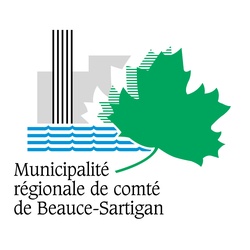
MRC Beauce-Sartigan — Créavenir program
MRC Beauce-Sartigan- Maximum amount : 5,000 $
- Up to 25% of project cost
- All industries
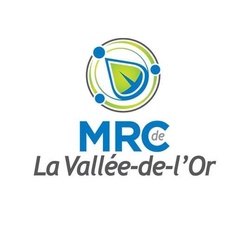
MRC La Vallée-de-l’Or — Reimbursement – Public Market Booth Rental Fees
MRC La Vallée-de-l'Or- Up to 100% of project cost
- Agriculture, forestry, fishing and hunting
- Manufacturing

Social Economy Development Fund
MRC Papineau- Maximum amount : 10,000 $
- Up to 80% of project cost
- Educational services
- Health care and social assistance
- Arts, entertainment and recreation
- Other services (except public administration)

Programme d’habitation abordable Québec - Volet 1 : Projets pour ménages à revenu faible ou modeste
Quebec Housing Society (SHQ)- Up to 80% of project cost
- Real estate and rental and leasing
- Educational services
- Health care and social assistance
- Public administration

MRC Charlevoix — Support Fund for Start-up and Expansion
MRC Charlevoix- Maximum amount : 5,000 $
- Up to 50% of project cost
- Educational services
- Health care and social assistance
- Other services (except public administration)
- Public administration

First Nations Waste Management Initiative
Indigenous Services Canada- No Condition
- Administrative and support, waste management and remediation services
- Public administration

Innovate BC — Ignite Program
Innovate BC- Maximum amount : 300,000 $
- Up to 30% of project cost
- Agriculture, forestry, fishing and hunting
- Mining, quarrying, and oil and gas extraction
- Professional, scientific and technical services

Programme d’habitation abordable Québec - Volet 3 : Initiative de multilogements hautement préfabriqués
Quebec Housing Society (SHQ)- No Condition
- Health care and social assistance

Programme d’habitation abordable Québec - Volet 4 : Projets par les développeurs qualifiés pour ménages à revenu faible ou modeste
Quebec Housing Society (SHQ)- Up to 80% of project cost
- Real estate and rental and leasing

CleanBC — Custom Program
CleanBC- Maximum amount : 250,000 $
- Up to 50% of project cost
- Utilities
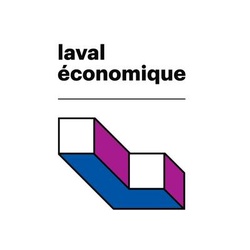
Laval Économique — Collective Entrepreneurship Fund
Laval Economique- Up to 80% of project cost
- All industries

Business growth — Éco-Capitale
Quebec City- Maximum amount : 500,000 $
- Up to 50% of project cost
- All industries

MTRIC — INNOV-R SME
Metal Transformation Research and Innovation Consortium (MTRIC)- Maximum amount : 450,000 $
- Up to 50% of project cost
- Manufacturing

Retrofit Program
Independent Electricity System Operator (IESO)- Maximum amount : 250,000 $
- Up to 50% of project cost
- Agriculture, forestry, fishing and hunting
- Manufacturing
- Educational services
- Health care and social assistance

MRC Charlevoix-Est — Assistance Fund for Bridge and Culvert Repair Projects on State-Owned Lands
MRC Charlevoix-Est- Maximum amount : 10,000 $
- Up to 50% of project cost
- Agriculture, forestry, fishing and hunting
- Other services (except public administration)
- Public administration

Saint-Joseph-du-Lac — Green Responsibility Fund
Saint-Joseph-du-Lac- Maximum amount : 15,000 $
- Up to 75% of project cost
- Agriculture, forestry, fishing and hunting
- Educational services
- Other services (except public administration)
- Public administration

MRC Charlevoix — FQM Business Succession Fund
MRC Charlevoix- Up to 50% of project cost
- Professional, scientific and technical services
- Other services (except public administration)
- Public administration
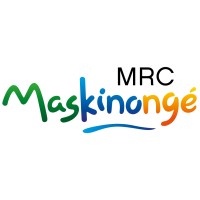
MRC Maskinongé — Young Entrepreneurs
MRC de Maskinongé- Maximum amount : 14,000 $
- Manufacturing

MRC Haut-Richelieu — FRR – Stream 2
MRC du Haut-Richelieu- Up to 50% of project cost
- Retail trade
- Accommodation and food services

Trade Commissioner Service — Canadian International Innovation Program (CIIP)
Global Affairs Canada (GAC)- Maximum amount : 600,000 $
- Up to 50% of project cost
- Professional, scientific and technical services

Ville de Shawinigan — Incentive Program for Commercial Spaces
Ville de Shawinigan- Maximum amount : 20,000 $
- Up to 50% of project cost
- Retail trade
- Other services (except public administration)
- Public administration

Destination Clic – French Enrichment Program
Canadian Heritage- From $2,400 to $2,400
- Educational services

MRC La Jacques-Cartier — Jacques-Cartier Tourism Envelope
MRC La Jacques-Cartier- Maximum amount : 2,500 $
- Arts, entertainment and recreation
- Accommodation and food services

PADAAR — Measure 4078 – Support for membership of a cooperative for the use of agricultural equipment (CUMA) and a cooperative for the replacement of agricultural labor
Ministry of Agriculture, Fisheries and Food (MAPAQ)- From $1,000 to $4,000
- Up to 50% of project cost
- Agriculture, forestry, fishing and hunting
Discover how much grant funding is available for your business
Subsidize your projects with grants!
Use our free grant estimator to quickly identify the available grant amounts for which your company may be eligible.

SODEC — Assistance for businesses in the arts and crafts sector — Stream 3
Société de développement des entreprises culturelles (SODEC)- Maximum amount : 10,000 $
- Up to 50% of project cost
- Arts, entertainment and recreation
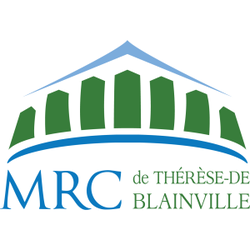
MRC de Thérèse de Blainville — Social Economy and Sustainable Development Business Development Fund
MRC Thérèse de Blainville- Maximum amount : 15,000 $
- Up to 70% of project cost
- Educational services
- Health care and social assistance
- Arts, entertainment and recreation
- Other services (except public administration)

Financial assistance for tourism festivals and events — Stream 3
Gouvernement du Québec- Maximum amount : 1,000,000 $
- Arts, entertainment and recreation
- Accommodation and food services

MRC des Chenaux — Young Promoters Fund
MRC des Chenaux- Maximum amount : 11,000 $
- Up to 80% of project cost
- Agriculture, forestry, fishing and hunting
- Manufacturing
- Professional, scientific and technical services
- Arts, entertainment and recreation

MRC Les Appalaches — FRR Part 2
MRC des Appalaches- No Condition
- Agriculture, forestry, fishing and hunting
- Administrative and support, waste management and remediation services
- Arts, entertainment and recreation
- Public administration

Development program — Indigenous stream
Telefilm Canada- From $15,000 to $37,500
- Information and cultural industries
- Arts, entertainment and recreation

Developing Medicines through Open Science (DMOS)
Conscience- Maximum amount : 1,600,000 $
- Up to 50% of project cost
- Professional, scientific and technical services
- Health care and social assistance

Tourism Growth Program (TGP) — Quebec
Canada Economic Development for Quebec Regions (CED)- From $60,000 to $250,000
- Up to 15% of project cost
- Arts, entertainment and recreation
- Accommodation and food services

Laval Économique — Business Launch Fund
Laval Economique- From $5,000 to $25,000
- Up to 50% of project cost
- All industries
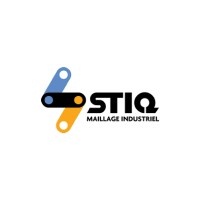
Diagnostic Program and Improvement Projects for Northern SMEs
Sous-traitance industrielle Québec (STIQ)- Maximum amount : 42,000 $
- Mining, quarrying, and oil and gas extraction
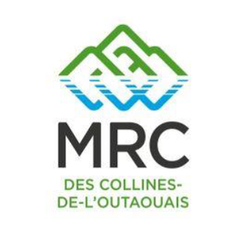
MRC Collines-de-l'Outaouais — FRR Stream 3
MRC des Collines-de-l'Outaouais- Up to 50% of project cost
- Arts, entertainment and recreation
- Other services (except public administration)
- Public administration

MRC L'Islet — Support Fund for Cultural Initiatives (FAIC)
MRC de L'Islet- Maximum amount : 6,000 $
- Up to 80% of project cost
- Arts, entertainment and recreation

SODEXPORT — Component 4: International relations
Société de développement des entreprises culturelles (SODEC)- No Condition
- Information and cultural industries
- Arts, entertainment and recreation

Critical Minerals Infrastructure Fund – Indigenous Grants
Government of Canada- Maximum amount : 200,000 $
- Up to 100% of project cost
- Mining, quarrying, and oil and gas extraction
- Utilities
- Transportation and warehousing

MRC Pontiac — FRR Stream 2
MRC Pontiac- No Condition
- All industries

MRC Les Moulins — Social Economy Enterprise Fund
MRC Les Moulins- Maximum amount : 10,000 $
- Up to 20% of project cost
- Other services (except public administration)
- Public administration

innovÉÉ — SI2TEC
innovÉÉ- Maximum amount : 500,000 $
- Up to 50% of project cost
- Agriculture, forestry, fishing and hunting
- Utilities
- Manufacturing
- Transportation and warehousing

Energy Performance Program
Independent Electricity System Operator (IESO)- No Condition
- Utilities
- Manufacturing
- Educational services
- Health care and social assistance

Roulez vert — Home charging station
Gouvernement du Québec- From $600 to $600
- Transportation and warehousing

Digital Shift Support Fund
Promotion Saguenay- Maximum amount : 35,000 $
- Up to 50% of project cost
- Manufacturing
- Information and cultural industries
- Professional, scientific and technical services

MRC Les Appalaches — Proximity services fund
MRC des Appalaches- No Condition
- Other services (except public administration)
- Public administration

Explore – Second Language Program
Canadian Heritage- From $2,760 to $3,850
- Educational services

Small Business BC — Workplace Accessibility Grant
Small Business BC- Maximum amount : 5,000 $
- All industries

MAPAQ — Supporting the development of greenhouse businesses
Ministry of Agriculture, Fisheries and Food (MAPAQ)- From $100,000 to $600,000
- Up to 50% of project cost
- Agriculture, forestry, fishing and hunting

eCommerce North Innovator Challenge
Elevate Talent- From $1,500 to $1,500
- Retail trade
- Arts, entertainment and recreation
- Accommodation and food services
- Other services (except public administration)
Find tailored funding for your business
Discover more grants on the helloDarwin platform
Look through over 4,000 grants, tax credits, loans and more financial aid on the helloDarwin application.

MRC Joliette — Technology and Digital Transition Fund (FTTN) – Stream 1
MRC de Joliette (CDÉJ)- Maximum amount : 1,500 $
- Up to 20% of project cost
- All industries

SODEXPORT – Component 2.2 : Support for touring music and variety shows abroad
Société de développement des entreprises culturelles (SODEC)- Maximum amount : 25,000 $
- Up to 40% of project cost
- Information and cultural industries
- Arts, entertainment and recreation

MRC Beaharnois-Salaberry — Support for local vitalization projects
MRC Beauharnois-Salaberry- No Condition
- Educational services
- Other services (except public administration)
- Public administration

Existing Building Commissioning program
Independent Electricity System Operator (IESO)- Maximum amount : 150,000 $
- Up to 75% of project cost
- Utilities
- Real estate and rental and leasing
- Educational services
- Health care and social assistance

Discovery Grants (individual) program
Natural Sciences and Engineering Research Council of Canada (NSERC)- No Condition
- Professional, scientific and technical services
- Educational services

MRC Abitibi-Ouest — Social Economy Fund
MRC Abitibi-Ouest- Maximum amount : 5,000 $
- Up to 80% of project cost
- Educational services
- Health care and social assistance
- Arts, entertainment and recreation
- Other services (except public administration)

Grant program for Old Saint-Eustache
Saint-Eustache- Maximum amount : 42,500 $
- Up to 33% of project cost
- Retail trade
- Accommodation and food services
- Other services (except public administration)

MRC du Rocher-Percé — Investment Fund (FLI) and Local Solidarity Fund (FLS)
MRC du Rocher-Percé- Maximum amount : 150,000 $
- Up to 50% of project cost
- All industries

Commemorating the National Day for Truth and Reconciliation
Canadian Heritage- Maximum amount : 10,000 $
- Educational services
- Health care and social assistance
- Arts, entertainment and recreation
- Other services (except public administration)

FAQDD — Ecological Transition Accelerator
Fonds d'action Québécois pour le développement durable (FAQDD)- From $50,000 to $250,000
- Up to 80% of project cost
- Educational services
- Other services (except public administration)
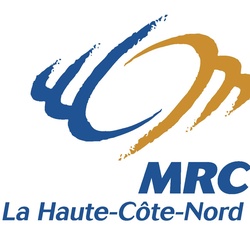
MRC La Haute-Côte-Nord — Business support (PSE)
MRC La Haute-Côte-Nord- Maximum amount : 50,000 $
- Up to 50% of project cost
- All industries

MRC Matawinie — Tourism Innovation and Development Fund
MRC de Matawinie- From $2,000 to $25,000
- Up to 25% of project cost
- Arts, entertainment and recreation
- Accommodation and food services
- Other services (except public administration)
- Public administration

FAQDD — Sustainable destination and concerted action - Component 1 - Support for participatory and concerted destination planning to promote responsible, sustainable tourism adapted to the context of climate change
Fonds d'action Québécois pour le développement durable (FAQDD)- No Condition
- All industries

MRC La Matanie — FLI Succession Stream
MRC La Matanie- Maximum amount : 250,000 $
- Retail trade
- Accommodation and food services
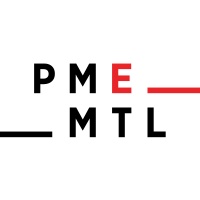
- Maximum amount : 15,000 $
- All industries

MTRIC — INNOV-R
Metal Transformation Research and Innovation Consortium (MTRIC)- Maximum amount : 1,500,000 $
- Up to 40% of project cost
- Mining, quarrying, and oil and gas extraction
- Manufacturing
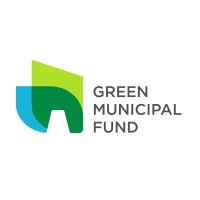
Tree planting
Green Municipal Fund (GMF)- From $50,000 to $10,000,000
- Up to 50% of project cost
- Agriculture, forestry, fishing and hunting
- Other services (except public administration)
- Public administration

MRC L'Islet — Youth Initiative Fund (YIF)
MRC de L'Islet- From $2 to $5,000
- Up to 25% of project cost
- Arts, entertainment and recreation

Flat-rate grant: businesses in sectors affected by major works
City of Montreal (MTL)- Maximum amount : 5,000 $
- Retail trade
- Real estate and rental and leasing
- Accommodation and food services
- Other services (except public administration)

MRC Charlevoix — Social Economy Business Development Fund (FDEÉS)
MRC Charlevoix- Maximum amount : 15,000 $
- Up to 80% of project cost
- Health care and social assistance

Innovation in Quantum Technologies — Stream 4
Ministère de l'économie, de l'innovation et de l'énergie du Québec (MEIE)- Maximum amount : 1,000,000 $
- Up to 50% of project cost
- Information and cultural industries
- Professional, scientific and technical services

PARESAU – Component 1 : Supporting strategic companies in their search for solutions
Investissement Québec (IQ)- Maximum amount : 100,000 $
- Up to 75% of project cost
- All industries

Musicaction — International Commercialization – Stream 1 Exploring a Target Market
Musicaction- Maximum amount : 25,000 $
- Up to 75% of project cost
- Arts, entertainment and recreation

MRC Témiscamingue — Fund YOUR SME
MRC Témiscamingue- Maximum amount : 3,000 $
- Up to 50% of project cost
- Retail trade

MRC Caniapiscau — Support for self-employment (STA)
MRC de Caniapiscau- No Condition
- All industries
Access over 10 000 different funding opportunities
Try the helloDarwin platform today and find programs that fit your needs
The helloDarwin application makes it easy to unlock grants so your business can grow faster—with less hassle and more impact.

MRC Rivière-du-Loup — Succession Fund
MRC Rivière-du-Loup- Maximum amount : 15,000 $
- Up to 5% of project cost
- All industries

Innovation program — Call for mobilizing projects on the development of tomorrow's transport technologies
Investissement Québec (IQ)- From $4 to $10,000,000
- Up to 50% of project cost
- Transportation and warehousing

MRC Beauce-Centre — Business succession
MRC Beauce-Centre- Maximum amount : 15,000 $
- Up to 50% of project cost
- All industries

Support fund for the development of tourism offers
Société des Attractions Touristiques du Québec (SATQ)- From $25,000 to $60,000
- Arts, entertainment and recreation
- Accommodation and food services

MRC Les Basques — Business Assistance Fund / FDE
MRC Les Basques- No Condition
- All industries

Genomics Innovation to Commercialization Program
Génome Québec- From $300,000 to $900,000
- Manufacturing
- Professional, scientific and technical services
- Educational services
- Health care and social assistance

MRC Charlevoix-Est — Watercourses
MRC Charlevoix-Est- No Condition
- Agriculture, forestry, fishing and hunting

MRC du Golfe-du-Saint-Laurent — Community Support Fund (CSF)
MRC du Golfe du Saint Laurent- No Condition
- All industries

Program authorizing the financing of the operating deficit of certain low-income housing projects
Quebec Housing Society (SHQ)- Up to 100% of project cost
- Real estate and rental and leasing
- Other services (except public administration)
- Public administration

Financial assistance for tourism festivals and events — Stream 1
Gouvernement du Québec- Maximum amount : 1,000,000 $
- Arts, entertainment and recreation
- Accommodation and food services

REGI — Jobs and Growth Fund — CED (QC) — Indigenous stream
Canada Economic Development for Quebec Regions (CED)- Up to 50% of project cost
- Manufacturing
- Information and cultural industries
- Health care and social assistance

Indigenous Languages Program - Indigenous Languages Component - Multi-distinction and Indigenous Urban Organizations languages projects
Canadian Heritage- Up to 100% of project cost
- Educational services
- Arts, entertainment and recreation
- Other services (except public administration)
- Public administration

MRC L'Islet — Child development assistance measure for the south of the territory
MRC de L'Islet- Maximum amount : 5,000 $
- Up to 80% of project cost
- Educational services
- Arts, entertainment and recreation
- Public administration

Remote First Nations Energy-Efficiency Program
Independent Electricity System Operator (IESO)- No Condition
- Utilities
- Construction

Financial support for northern initiatives
Gouvernement du Québec- Maximum amount : 500,000 $
- Up to 50% of project cost
- Educational services
- Health care and social assistance
- Other services (except public administration)
- Public administration

MRC Témiscamingue — Créavenir - Desjardins
MRC Témiscamingue- Maximum amount : 15,000 $
- All industries

New Horizons for Seniors Program
Employment and Social Development Canada (ESDC)- Maximum amount : 25,000 $
- Educational services
- Health care and social assistance
- Arts, entertainment and recreation
- Other services (except public administration)

MRC Abitibi-Ouest — Digital Transition Fund
MRC Abitibi-Ouest- No Condition
- Agriculture, forestry, fishing and hunting
- Manufacturing
- Wholesale trade
- Retail trade

MRC L’Île-d’Orléans — Regions and Rurality Fund
MRC L'Île-d'Orléans- Maximum amount : 35,000 $
- Up to 50% of project cost
- Agriculture, forestry, fishing and hunting
- Manufacturing
- Arts, entertainment and recreation
- Other services (except public administration)

Digital Museums Canada — Community Stories
Digital Museums Canada (DMC)- From $25,000 to $25,000
- Up to 25% of project cost
- Information and cultural industries
- Educational services
- Arts, entertainment and recreation

MRC Joliette — Assistance fund for the establishment and start-up of structuring companies (FAIDES)
MRC de Joliette (CDÉJ)- Maximum amount : 50,000 $
- Up to 3% of project cost
- Manufacturing
- Information and cultural industries
- Professional, scientific and technical services
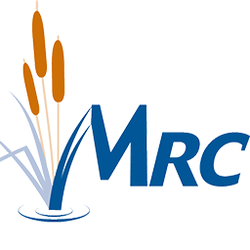
MRC Kamouraska — Support Program for the Start-up of Religious Heritage Projects
MRC Kamouraska- Maximum amount : 4,000 $
- Up to 10% of project cost
- Arts, entertainment and recreation

Financial assistance: businesses in areas affected by major construction work
City of Montreal (MTL)- Maximum amount : 40,000 $
- Up to 5% of project cost
- Retail trade
- Other services (except public administration)

"Artère en transformation" : Subsidy for businesses
City of Montreal (MTL)- Maximum amount : 250,000 $
- Up to 40% of project cost
- Retail trade

Energy Affordability Program
Independent Electricity System Operator (IESO)- No Condition
- All industries